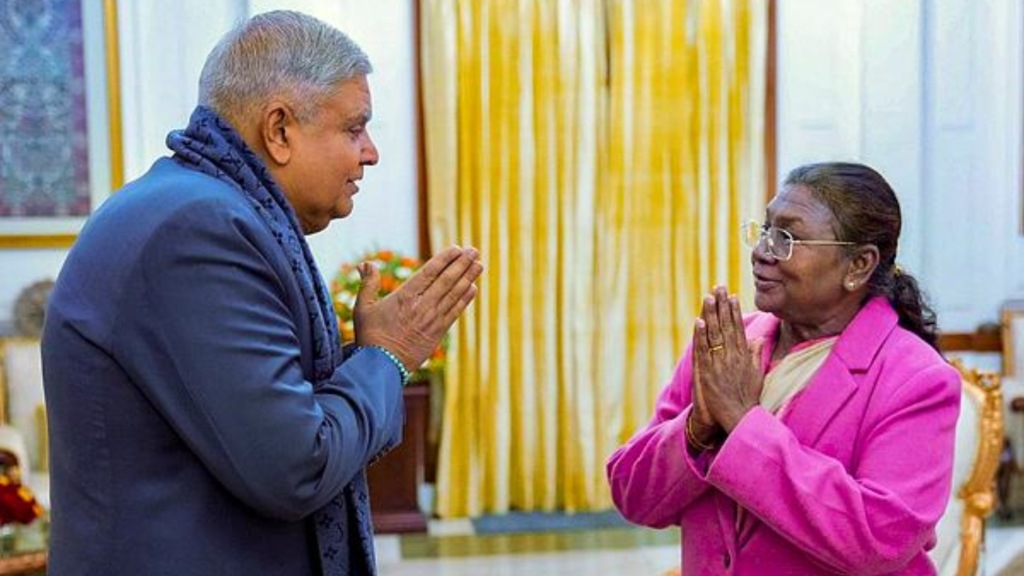Vice President Jagdeep Dhankhar resigned from his post with immediate effect late Monday night, making him only the third Vice President in India’s history to step down before completing a full five-year term. Before him, VV Giri and R Venkataraman had resigned to contest presidential elections, and were succeeded by Gopal Swarup Pathak and Shankar Dayal Sharma, respectively. In his resignation letter addressed to President Droupadi Murmu, he cited health reasons.
“To prioritise health care and abide by medical advice, I hereby resign as the Vice President of India, effective immediately, in accordance with Article 67(a) of the constitution,” Dhankar wrote in his resignation to President Murmu.
According to Article 67(a), a Vice President can either resign by writing to the President or may be removed by a resolution of the Rajya Sabha with agreement from Lok Sabha or continue in the office until a successor is named, even after the term expires.
Now that Dhankar, who previously served as the Governor of West Bengal and the ex-officio Chairman of Rajya Sabha, has resigned, the focus now shifts to who will fill the vacant position and the process of electing a vice president.
What happens next?
With Vice President Jagdeep Dhankhar stepping down, the Rajya Sabha will be presided over by the Deputy Chairman. Since the Monsoon Session of Parliament began yesterday, this responsibility will fall to Harivansh Narayan Singh.
No acting Vice President
The Constitution of India does not provide for an acting Vice President. Unlike in the case of a President’s resignation, where the position must be filled within six months, there is no specific timeline mentioned for filling a vacancy in the Vice President’s office.
The Constitution simply states that the election should be conducted “as soon as possible” to fill in the vacant position of the second-highest office in India.
Election Commission is also expected to soon announce the schedule for the Vice Presidential election, which will be held under the President and Vice Presidential Elections Act of 1952. Since the Act requires a returning officer, who will oversee the entire election process and declare the result, the Secretary General of either House of Parliament is appointed for the role, in rotation.
How is the Vice President elected?
The voting, to elect Vice President, is done by a secret ballot by the electoral college. The electoral college consists of MPs from both Houses of Parliament – Lok Sabha and Rajya Sabha, including the nominated members. However, the MLAs from State Assemblies are not included in this college, unlike in the case of the President.
Now, when the voting begins, each MP, who is part of the electoral college, marks the names of candidates in order of preference, folds the ballot paper and drops it in the ballot box. Each vote holds equal weight, and the election is conducted using the system of proportional representation through a single transferable vote.
To win, a candidate must secure a minimum number of votes known as the “quota.”
But how is this calculated?
The Vice President is elected by calculating a quota: half of the total valid votes plus one. If no candidate meets this quota in the first round, the one with the least first-preference votes is removed from the race, and their votes are redistributed according to the voters’ next preferences. This elimination and redistribution process continues until a candidate achieves the required quota.
Who is eligible to contest?
To contest for the post of Vice President of India, a person must be a citizen of India, at least 35 years old, and qualified to be elected to the Rajya Sabha. The candidate must also be registered as an elector in any parliamentary constituency. Additionally, the individual should not hold any office of profit under the central or state government, except for positions such as the President, Governor, or Minister.
The newly elected Vice President will serve a full five-year term from the date they assume office, regardless of the circumstances under which the predecessor resigned.

